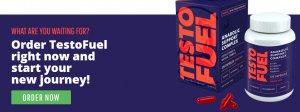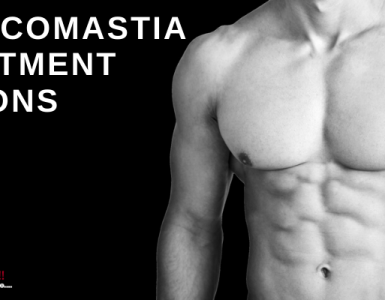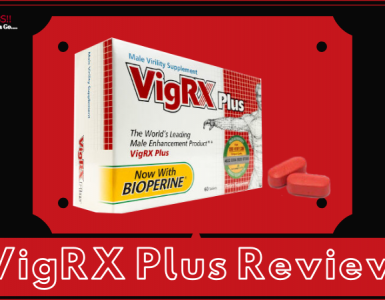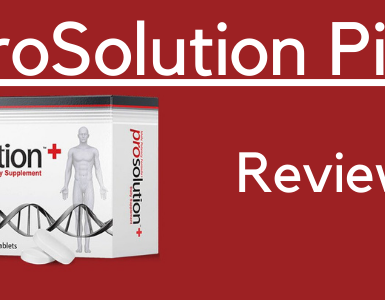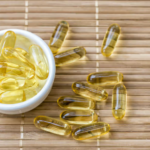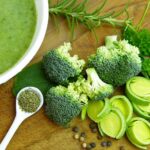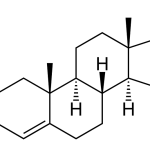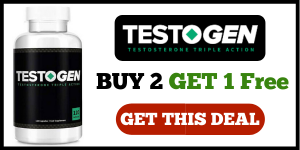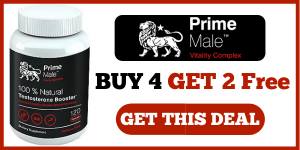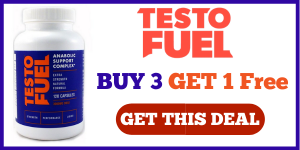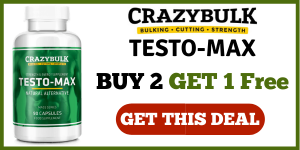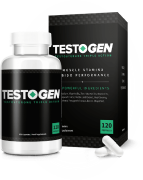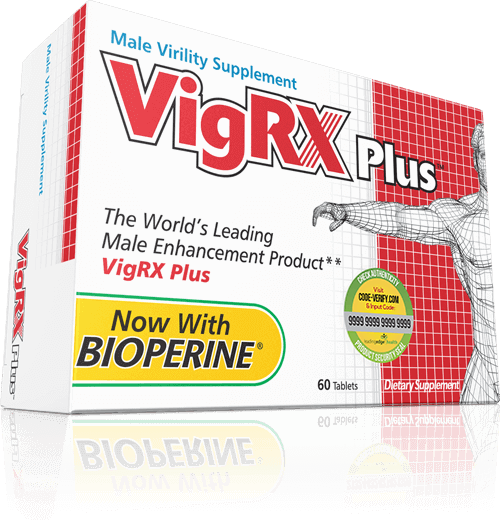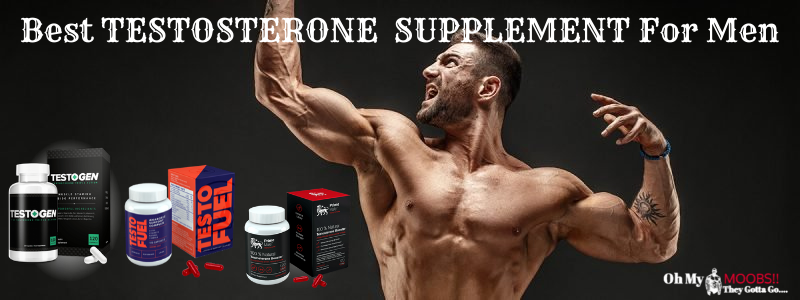
There are many ifs and buts associated with the use and effectiveness of testosterone supplement for men. In the first place, the question is whether it makes sense at all to try to increase your testosterone level.
Of course, testosterone fulfils important functions in our body, also in terms of body composition (muscle growth and fat loss). But most healthy men up to the age of fifty make enough testosterone from themselves to be able to fulfil those functions sufficiently. If your testosterone level is within the natural range, you will normally hardly notice any increase in that level. Only big jumps will have a noticeable impact on things like energy levels, sexual functioning and fat burning.
Some testosterone-related aspects, in particular muscle growth and aggression, are only significantly affected when the testosterone level is (far) outside the natural range. That means you need to raise your testosterone levels by several hundred percent. This is only possible with the help of anabolic steroids.
Table of Contents
Testosterone Supplement For Men
So are testosterone-boosting measures useless if you’re a healthy twenties or thirties? Usually yes. Especially if you are a strength athlete with a healthy lifestyle including a responsible diet.
Nevertheless, there may be circumstances in which you have a relatively low testosterone level. We are especially thinking of a firm, long-lasting cut to get rid of fat. With a long-term calorie-restricted diet in combination with strength training and possibly cardio, deficiencies in important vitamins and minerals can arise. Some of these, such as zinc, magnesium and vitamin D, have a major impact on your testosterone levels. In that case, a support supplement can offer a solution.
By maintaining your testosterone level during dieting, you retain more energy. In addition, testosterone also has a direct effect on combustion and it can not be ruled out that even fluctuations within the natural testosterone range influence this.
Do Testosterone Supplement Work?

A second problem with testosterone boosters is that their effect has not always been (convincingly) demonstrated. Sometimes there is a complete lack of scientific support, and sometimes only animal research has been carried out into a substance. The latter is usually not sufficient. Humans have a relatively short small intestine, and as a result absorb all kinds of substances in plants less well than, for example, mice and rats. In addition, people have a metabolism that is quite efficient at neutralizing foreign substances. Many substances that have an interesting effect in a laboratory animal often do little or nothing with us.
All things considered, there are only a limited number of substances whose possible testosterone-boosting effect has been scientifically or convincingly proven. Some of those substances (vitamins and minerals) are in our daily diet and you normally get enough. Supplementation can only make sense in some circumstances, such as during a long-term calorie-restricted diet.
Other substances are hardly, if at all, in our diet, but are, for example, plant extracts, which may or may not have been handed down by ancient (exotic) medicine. They may actually increase your testosterone levels, but we have already seen that it probably only makes sense if that value is very low. And the possible effect is not so much that you build muscle faster, but rather that you have more energy and sex drive, and that you are in a better mood. Fat burning may also be promoted.
Testosterone and Bodybuilding
If you want to build more muscle mass than is, of course, possible, you have to go to steroids. If you indeed aspire to that, we advise you first to use your natural genetic potential.
In the first two years of your strength training career, you can already build about 75% of your potential natural muscle mass. And because of the high training sensitivity as a beginner, you can achieve that even with relatively little effort. A male natural bodybuilder can gain a maximum of 10 to 18 kg of muscle mass in his lifetime through strength training (13 kg on average). The exact amount depends on body type and genetics. For most men, perhaps excluding bodybuilders, that’s more than enough to look super jacked.
Ingredients of Testosterone Supplement For Men
You now know that boosting testosterone levels is not necessary in normal circumstances, at least not in a healthy lifestyle. The only real situations in which supplements can help are with testosterone levels that are at the lower end of the natural spectrum (usually due to age) or when you are unable to eat enough, which may lead to a lack of essential vitamins and minerals (a potential risk during a long-lasting cut). Then testosterone boosters will not give you extra muscle mass, but they may contribute positively to your energy level and possibly also a little to fat burning.
From all testosterone-related supplements available on the legal market, we came to the following selection of ingredients that, based on scientific literature, may have a positive effect on your testosterone level. One is not necessarily better than the other, which is why we discuss them in alphabetical order.
ASHWAGANDHA
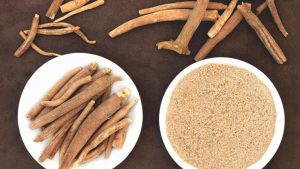
Ashwagandha is a shrub whose roots mainly contain substances to which medicinal effects are attributed. Because of those effects, ashwagandha herbal extracts have been used in Indian medicine for thousands of years. In the Western world (er) people also know the good properties of the herb. Ashwagandha is an adaptogen. Adaptogens help you deal better with stress, mental challenges and improve your sexual drive.
Ashwagandha is also known as a testosterone (and libido) booster. Four studies have been conducted to date on the effect of ashwagandha intake on testosterone. All four showed an increase in testosterone levels in men, of which one study reported an increase of 10-22%, versus an 11–32% decrease in the “stress hormone” cortisol. In the latter study, the 60 male participants received 5 grams of ashwagandha from the root daily. A side note is that of the four studies mentioned; three had been conducted among infertile men who had lower testosterone levels.
Specifically, for strength athletes, however, there are promising results from the fourth study, which included 57 healthy men aged 18 to 50. The subjects, who had little or no experience with strength training, were subjected to a small two-month strength training program. Afterwards, not only higher testosterone levels, but also more muscle growth, more strength gain and a greater decrease in fat percentage were found among the ashwagandha users. The dose used was 300 mg twice a day.
These effects on body composition are striking. After all, an increase in testosterone levels only has a significant influence on this if the level exceeds the natural ceiling, such as when using anabolic steroids. Since it is only one study involving healthy, strength-sporting men, we are still cautious about drawing festive conclusions.
GINGER
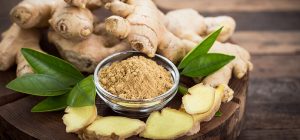
Ginger has a long history of use as a spice and herbal medicine, especially in Asian, Indian and Arab folklore. Ginger has also been on the menu in our regions for centuries.
Okay, for the taste, you gotta love it. But ginger may also offer some health benefits, although these are not yet very convincingly scientifically proven.
What is less known is that ginger may also increase testosterone levels. At least that is suggested by one human study. The somewhat obscure Iraqi study is far from perfect methodologically but is often cited for lack of more research. The Iraqis treated 75 infertile men for three months with an unknown dose of ginger (probably a few grams per day), resulting in an average testosterone increase of 17.7%. Ginger consumption also benefited sperm quantity and quality.
Whether ginger does something for your testosterone level is therefore mainly a matter of trying it out. If desired, this can be done with a supplement.
VITAMIN D
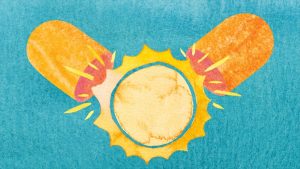
Vitamin D is a fat-soluble vitamin and is essential for converting dietary calcium and important for healthy bones and teeth. The vitamin also plays an important role in the central nervous system and the immune system, and in the maintenance of good muscle function.
Vitmaine D also influences the production of testosterone, something that has emerged in a number of scientific studies. For example, men with a vitamin D deficiency appear to have a significantly lower testosterone level than men who have enough vitamin D in their blood. And older men with a low vitamin D level are less likely to have (too) low testosterone levels when they take vitamin D supplements. Vitamin D supplementation has also been shown to increase testosterone levels in overweight men (and possibly low testosterone levels).
Does that mean now that vitamin D supplements are testoterone boosters? Not necessarily. If your vitamin D status is optimal and your testosterone level is within the normal range, such a supplement will probably have no effect.
ZMA
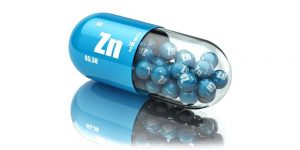
ZMA is a combination of zinc monomethionine and aspartate (30 mg), magnesium aspartate (450 mg) and vitamin B6 (10.5 mg), three important micronutrients for energy, muscle protein synthesis and hormones, among others. According to its creator, supplementation with ZMA promotes testosterone levels and strength performance, and thereby muscle growth. Two independent studies have overturned these claims: ZMA only has an effect if there is a shortage of one or more of the ingredients. So ZMA is not actually a testosterone booster, but a support supplement.
Many strength athletes say they have positive experiences with ZMA, perhaps because strength athletes are more often deficient in zinc, magnesium and vitamin B6. In addition, there may be a synergy between the ingredients when taken together in these proportions. However, that is still unclear.
Supplementation with zinc, magnesium and vitamin B6 can be useful if you combine intensive exercise with a calorie-restricted diet, such as during the cut. A one-sided or unhealthy diet can also cause a deficiency. ZMA is then a useful support supplement, although the ingredients are also available as separate supplements or as part of a multivitamin.
Best Testosterone Supplement For Men – Top 2
Testosterone boosters that you come across in (web) shops are usually a mix of several substances, usually including one or more of the above. The manufacturer often promises a balanced composition, but you can safely take that with a grain of salt. After all, nothing is known about a synergy between certain components. If you put several tester boosting substances in one product, they can of course together give an extra big boost. But the problem is that the individual ingredients are often not dosed high enough. You often see the same problem with pre-workout supplements.
In our opinion, most of these products are money-beater. We currently dare to recommend only three testosterone boosters that could actually have an effect when your testosterone levels are on the low side. To this end, we rely on the presence of ingredients that have scientific support, plus an adequate dosage thereof.
Testogen
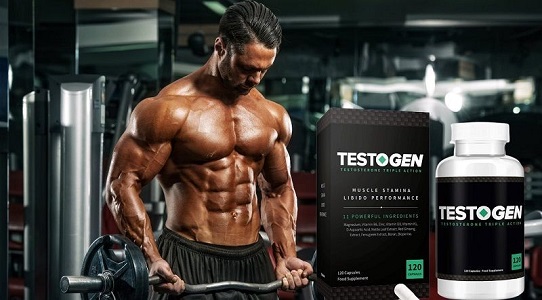
Testogen contains substantial amounts of zinc, ginseng and vitamin D3. In addition, it contains fenugreek. This makes it a great support supplement, for example during a calorie-restricted diet. Testogen also contains selenium, but probably in a small dose to influence the testosterone level. In daily testosterone-related studies on ashwagandha, daily doses ranging from 600 milligrams to 5 grams have been used.
Testogen testosterone booster contains ginseng, a root vegetable that increases libido, among other things. However, this property seems to be separate from sex hormones, because maca probably has no effect on testosterone levels.
Active ingredients (per daily dose):
- Selenium
- Tribulus Terrestis
- Zinc
- Vitamin D3
- Ginger extract
Prime Male
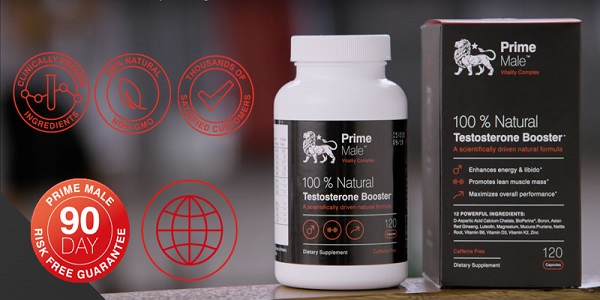
Prime Male supplement is best known for its vitality enhancement, but the company also markets it as a testosterone supplement. We are quite fond of the composition. This in contrast to their latest t-booster, and muscle transform. This contains both D-aspartic acid and boron in adequate doses, supplemented with magnesium and ginseng among others.
Active ingredients (per daily dose):
- Luteolin
- D-Aspartic Acid
- Zinc
- Asian Red Ginseng
- Vex Root Extract
- Vitamin D3
- Magnesium
- Bioprine
Finally
Natural testosterone boosters are supplements that contain one or more substances that promote testosterone production. If those substances are already effective – which is often the question – they usually only have a significant effect if you have a very low testosterone level. This effect is especially noticeable in the field of energy, mood and sexual functioning. Sometimes fat burning is also positively influenced. Fluctuations within the natural testosterone range do not normally have a direct effect on muscle growth.
Testosterone boosters are controversial supplements touted by the manufacturers with superlatives, whereas they are usually dismissed as scam by bodybuilding coaches. In our opinion, the truth is more in the middle: in some circumstances, supplements can actually help to increase your testosterone level slightly and you may experience positive effects, albeit to a limited extent. And with well-researched ingredients, if it doesn’t help, it won’t harm.
However, natural testosterone booster supplements do not directly affect muscle strength and muscle growth. They are in no way comparable to anabolic steroids. Unfortunately, that suggestion is still too often aroused by supplement manufacturers.
My Personal Pick For Testosterone Supplement For Men
